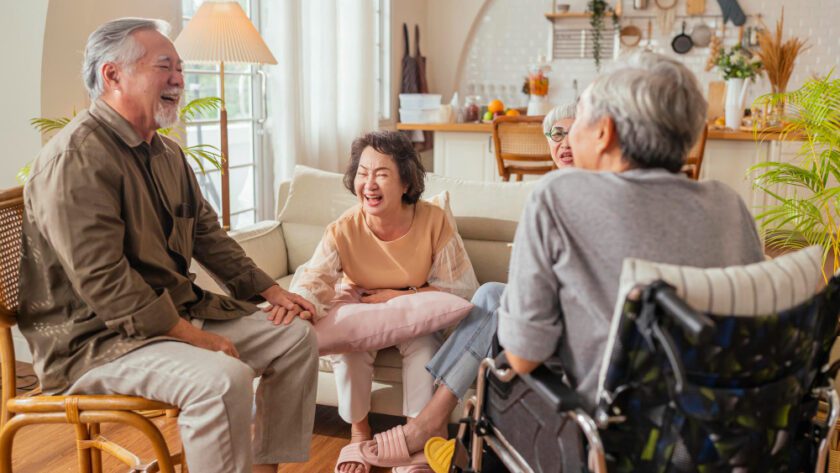As our community ages, prioritizing the well-being of the elderly is gaining greater significance, especially within the context of care home environments. These establishments hold a pivotal role in offering assistance and fostering a sense of community for seniors who encounter daily living obstacles or health concerns. This blog aims to explore the fundamental components that play a key role in elevating the overall quality of life for elderly inhabitants in care homes.
Person-Centered Care
A cornerstone in improving the quality of life for seniors in care homes is the adoption of a person-centered care approach. Recognizing and respecting the unique qualities of each resident, including their preferences, interests, and personal history, is essential. Customizing care plans to meet individual needs creates an environment that fosters identity, autonomy, and purpose.
Stretton Hall Care Home exemplifies the commitment to enhancing the quality of life for elderly residents by providing tailored support, fostering a sense of community, and prioritizing individual well-being within a caring and dedicated environment.
Social Engagement and Community Building
Social isolation is a prevalent concern among elderly individuals, especially those in care homes. Care facilities should prioritize social engagement and community-building activities to combat this issue. Group outings, game nights, educational sessions, and interactive events can cultivate a sense of belonging and reduce feelings of loneliness. Dedicated spaces for residents to gather, share stories, and form connections contribute significantly to emotional well-being.
Recreational and Therapeutic Programs
Incorporating recreational and therapeutic programs into daily routines is crucial for maintaining the mental and physical health of elderly residents. Activities such as music therapy, art classes, and gardening stimulate cognitive function, providing opportunities for self-expression and creativity. Tailored exercise programs catered to individual abilities contribute to maintaining mobility and overall well-being.
Nutritious and Varied Meals
Nutrition plays a pivotal role in the overall health of older adults. Care homes should prioritize providing well-balanced, nutritious meals that accommodate residents’ dietary needs and preferences. The dining experience should be a social and enjoyable time, promoting physical and mental health. Special attention should be given to dietary restrictions and the inclusion of options aligning with cultural preferences.
Comfortable and Homely Environment
The physical environment within care homes significantly influences the well-being of elderly residents. Creating a warm, comfortable, and homely atmosphere contributes to a sense of security and familiarity. Personalized spaces with familiar belongings and outdoor areas for residents to enjoy nature and sunlight positively impact both physical and mental health.
Support for Mental Health
Addressing the mental health needs of elderly residents is paramount in enhancing their overall quality of life. Care homes should have trained staff and resources to identify and support residents experiencing depression, anxiety, or other mental health challenges. Providing access to support groups, counseling services, and incorporating mindfulness practices can contribute to a positive and resilient mindset among residents.
Conclusion
Improving the quality of life for seniors in care homes requires a comprehensive and holistic approach. Care homes can create environments that promote well-being, autonomy, and fulfillment by prioritizing person-centered care, social engagement, recreational programs, nutritious meals, a comfortable environment, and mental health support. As society continues to age, it is crucial to invest in and prioritize the care and quality of life for our elderly population in these vital living spaces.




